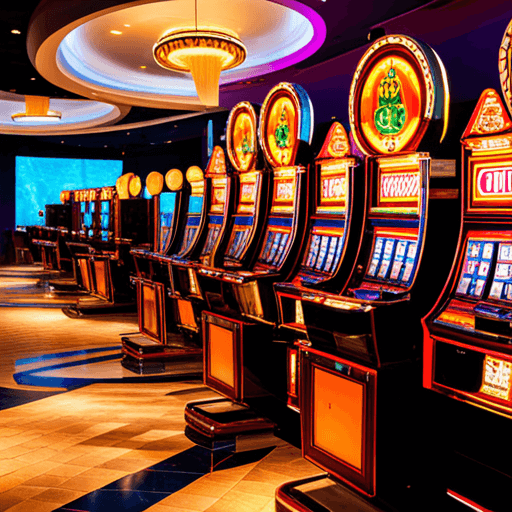
Gambling games have long captured the fascination of individuals around the globe, becoming an essential part of both entertainment and tradition. From the shimmering lights of Nevada to the captivating experience of online gaming, these experiences evoke thrill, uncertainty, and sometimes even a sense of remembrance. They are more than simply hobbies; they have woven themselves into the texture of society, influencing everything from cinema and melodies to fashion and writing.
The allure of casino games surpasses the betting aspect, tapping into broader themes of fortune, possibility, and social interaction. As players assemble around a gaming table or spin the wheel of fortune, they engage in an ancient ritual that connects with our communal desire for thrill and instability. This obsession has led to the growth of many references in cinema, songs, and video games, showcasing how deeply entrenched these pastimes are in pop culture. Whether it is the intense drama of a legendary heist movie or the colorful nightlife portrayed in videos, casino games have carved out a substantial place that reflects our bond with reward.
Historical Impact of Casino Games
Casino games have played a crucial role in social contexts throughout history. Stemming from ancient societies, forms of chance were often connected to rituals or gatherings. For instance, early forms of these activities can be traced back to historic Chinese and the Romans, where dice games and betting on results were common pastimes. These activities not only functioned as entertainment but also as means of connecting people, facilitating relationships among people within communities.
As cultures evolved, so did the complexity and organization of gambling games. The creation of formal casinos in the 17th century, particularly in the Italian region, marked a notable shift in how games were viewed and structured. With designated spaces for gambling, the casino became a social hub where patrons from different backgrounds convened. This change contributed to the legitimization of gambling, transforming it from a mere pastime into an organized industry that influenced the economy and policy.
The impact of casino activities on mainstream culture cannot be understated. As they were brought into the limelight in literature and movies, games such as poker and blackjack became icons of risk, chance, and strategy. Iconic figures and stories have developed around these activities, illustrating societal views towards luck, prosperity, and immorality. This fascination with casino games has permeated various forms of media, cementing their status in the public imagination and linking them to wider cultural narratives throughout history.
Depiction of Casino Games in Entertainment
Casino activities have long been a popular topic in different types of entertainment, reflecting both the thrill and complexities of the world of gambling. Films such as Ocean’s 11 and Casino Royal portray figures who navigate dangerous scenarios, showcasing not only the attractiveness of the gambling environment but also the strategies and choices that come with playing popular games like Texas Hold’em and 21. These films often dramatize the excitement of winning and the potential consequences of losing, encapsulating the dangers involved in gambling.
TV programs have also explored the realm of gambling activities, often integrating them into the narrative as a setting for character development and tension. https://ga179.xyz/ Shows like Vegas depict the stories of gambling employees and customers, highlighting the vibrant, often chaotic energy of the gaming floor. Reality shows featuring intense betting contests further emphasize the fascination of casino games, drawing viewers into the tension and tactics involved in each game. Through these depictions, media not only amuses but also stimulates conversations about fortune, expertise, and the essence of chance.
Digital games have increasingly integrated casino games into their development, allowing players to simulate the thrill of gambling without financial risk. Games within the realm of digital gaming often include virtual slots, online poker, and other popular casino games, creating an interactive experience that mirrors traditional gambling. These digital representations make gambling activities accessible to a worldwide viewer base, appealing to both risk-takers and those who enjoy the thrill of virtual experiences. As a consequence, the portrayal of gambling activities in media continues to shape cultural attitudes and cultural significance, highlighting their place in society and culture.
Impact of Casino Games on Communities
Casino games have a significant effect on communities, affecting various facets of culture and social behavior. They often serve as a platform for community engagement, where people come together to experience a common experience. Game nights with friends or visits to casinos become group events that foster connections and create memories. This collective aspect boosts the fun value of casino games, making them a favored choice for festivities and recreational pursuits.
Additionally, gambling activities have been depicted in numerous movies, television shows, and written works, influencing views and opinions towards gambling and gaming. Icons like James Bond competing in baccarat or the intense poker scenes in films have embedded these games in the shared imagination. This representation often idealizes the lifestyle associated with casino activities, drawing in new players and impacting trends in both style and conduct. These portrayals can spark curiosity and lead to a more profound exploration of the intricacies of gambling.
Nonetheless, there are also negative consequences linked to the popularity of gambling activities. The temptation of quick monetary gain can lead to gambling addiction and financial troubles for some people. Society must grapple with these issues, promoting responsible gaming and education of the dangers involved. Balancing the entertainment value of casino games with the potential for harm is crucial to ensure that they continue to be a positive aspect of our societal fabric.
